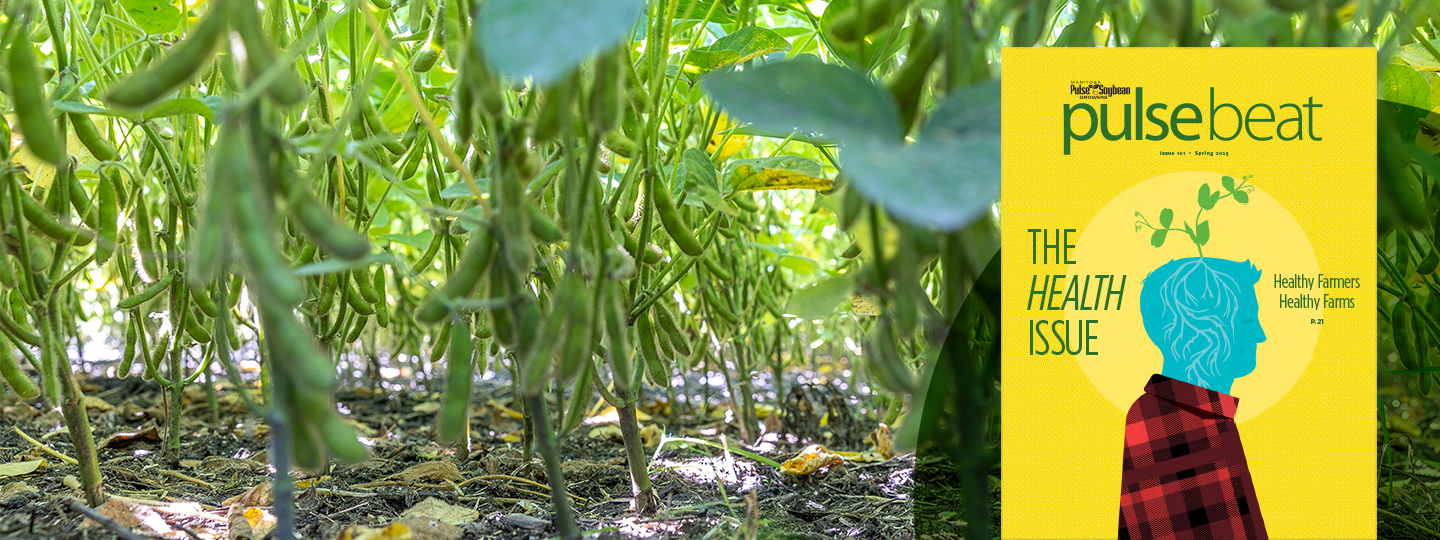How the Soil Health Network is creating a community
BY: Ashley Robinson, editor
Finding evidence-based information about how to make your soil healthy is not always easy. Nor is talking to others about it without being sold something or told you need to do it a certain way.
“People do not like to be spoken to top down, told how to run their business. The [Assiniboine College] applied research team just felt that farmers really had the answers. To give them the opportunity to get together and share those ideas and things that they’ve tried and what has worked and what hasn’t worked,” explains Jane De Pauw, coordinator of applied research at Assiniboine College.
In 2022, Assiniboine College decided to do something to help farmers. Regenerative agriculture and sustainability were making headlines, and everywhere farmers turned they were bombarded with information about soil health. The college applied for funding from the Weston Family Foundation to support farmers in exploring best management practises (BMPs) for soil health, receiving financing in December 2022 for a five-year project.
“The whole idea was that farmers would help other farmers, and they could develop these areas of support basically, or these communities of practice,” De Pauw says.
In March 2023, Brent VanKoughnet was hired as the project lead for what became the Soil Health Network. Initially, the first two years were supposed to focus on Manitoba only. But as the project got up and running and more people heard about it, they had interest from across Western Canada, so they expanded earlier than planned to include Saskatchewan and Alberta.
The Soil Health Network takes a grassroots approach for farmers to learn about soil health. Assiniboine College provides a framework for farmers to find and share information. The team at the Soil Health Network is working to create a space for farmers to discuss soil health in ways that are practical and achievable.
One of the groups’ initiatives includes facilitating farmer-led discussions on soil health. To do this, they find champions of soil health, who are identified by producer organizations. The champions then invite 10 to 12 of their peers to their farm for a candid discussion about what they’re doing on their farm and the challenges they’re facing. Soil Health Network representatives facilitate the discussions, sending out the invites and helping guide the conversations.
“When the host has chosen who’s there, there’s a remarkable comfort and familiarity with each other’s issues and they dive into a really productive conversation almost immediately,” VanKoughnet explains. These discussions are “all different, and they’re all really cool, and many growers say, ‘I didn’t realize some of those solutions were in the room.’”
To date, a dozen of these peer group discussions have been hosted at farms across Manitoba, Saskatchewan and Alberta.
The Soil Health Network has also created a website of resources on soil health. They’ve poured through available research to find the best extension and producer related information around soil health and put it all in one place. The information is organized into categories making it easy to access.
The team is working on creating other resources including a podcast series on soil health. The podcast will feature farmers sharing their interesting takes on soil health or researchers talking about their soil health work.
The Soil Health Network is also planning to experiment with online peer support groups and discussion forums. Forums may include group discussions of specific topics. The first 25 people to join online will be invited to a discussion group. A special guest will lead the discussion and interact with the framers.
While the funding is only for five years, the Soil Health Network wants to create a lasting legacy. They hope that by providing these tools to farmers, farmers will continue having these frank and honest discussions with each other about soil health.
“My hope is that we have impact well beyond the five-year Weston funded program. We plan to leave some legacy culture behind, where soil health conversations and collaboration becomes the norm, rather than something that needs to be carried and nurtured. That would be a wonderful legacy,” VanKoughnet says.
To view resources from the Soil Health Network visit its website.

